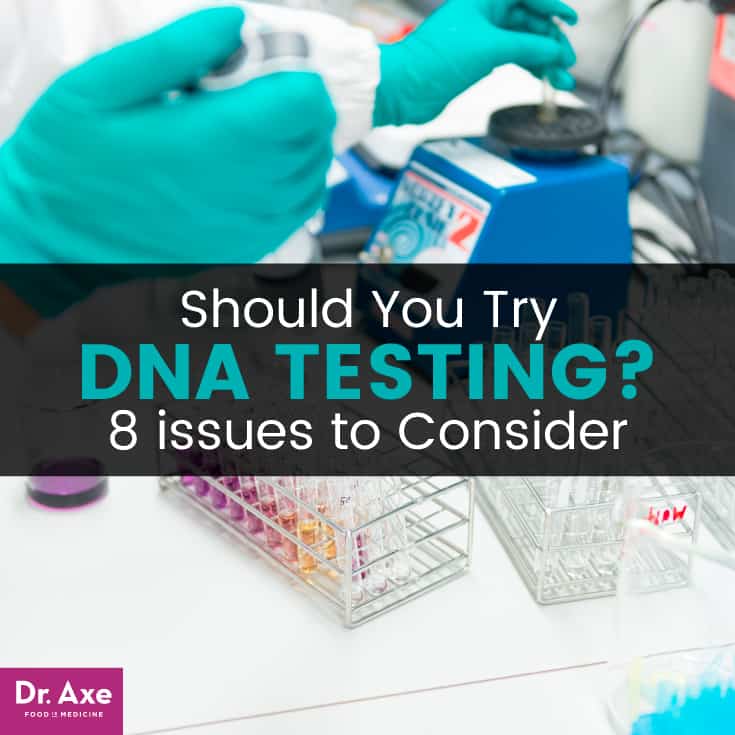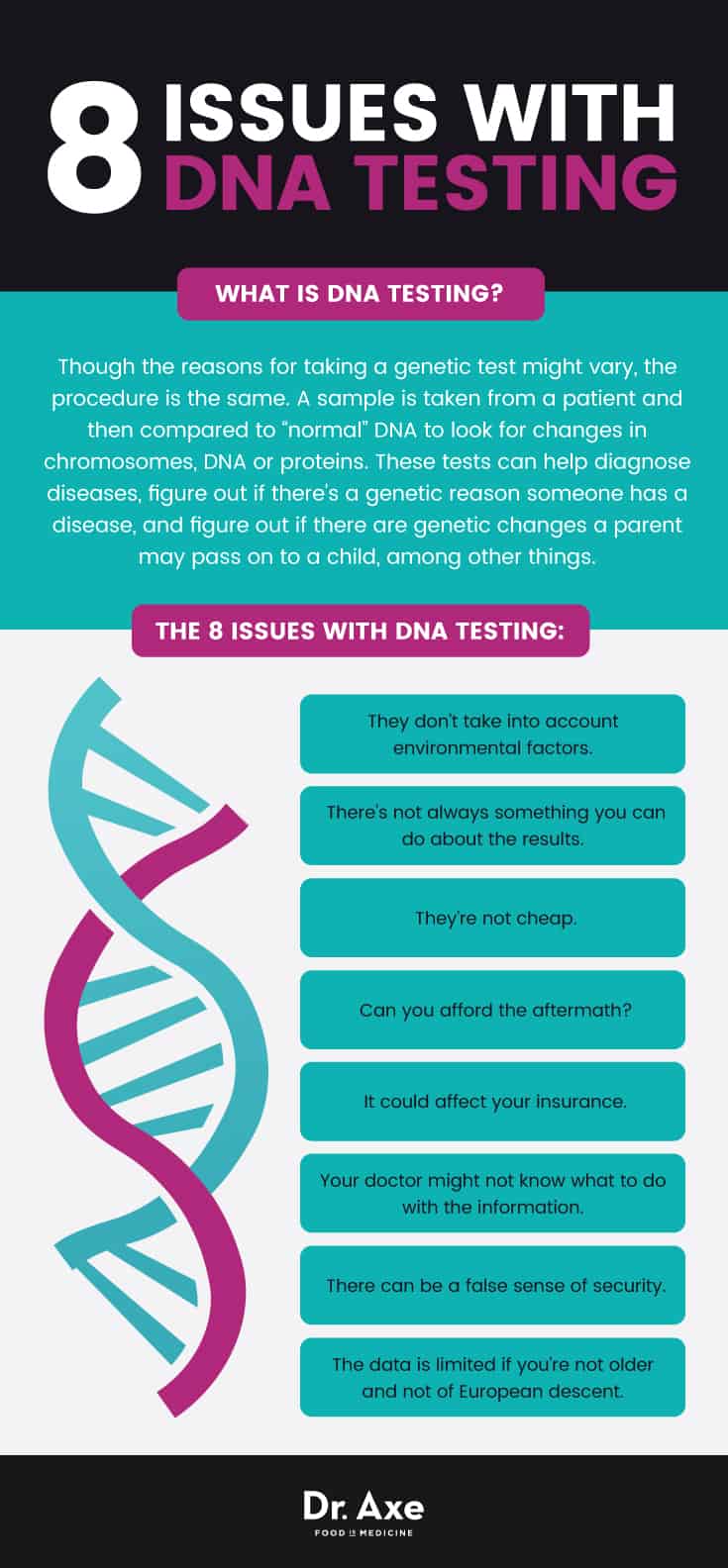This Dr. Axe content is medically reviewed or fact checked to ensure factually accurate information.
With strict editorial sourcing guidelines, we only link to academic research institutions, reputable media sites and, when research is available, medically peer-reviewed studies. Note that the numbers in parentheses (1, 2, etc.) are clickable links to these studies.
The information in our articles is NOT intended to replace a one-on-one relationship with a qualified health care professional and is not intended as medical advice.
This article is based on scientific evidence, written by experts and fact checked by our trained editorial staff. Note that the numbers in parentheses (1, 2, etc.) are clickable links to medically peer-reviewed studies.
Our team includes licensed nutritionists and dietitians, certified health education specialists, as well as certified strength and conditioning specialists, personal trainers and corrective exercise specialists. Our team aims to be not only thorough with its research, but also objective and unbiased.
The information in our articles is NOT intended to replace a one-on-one relationship with a qualified health care professional and is not intended as medical advice.
Consider These 8 DNA Testing Issues Before You Get Tested
May 24, 2017

Imagine that, just by swabbing your cheek with a piece of cotton, you could figure out if you might be susceptible to a particular disease. Or, you could know whether your future children are at risk of inheriting a disease that runs in the family. And never mind having to do this at a doctor’s office or in a lab. You can do it without professional help, and have the results sent directly to you.Today, this is completely possible. DNA testing, or genetic testing, is now available directly to consumers. From the comfort of your own home, you can discover if you’re at a higher risk of certain diseases or conditions. And you can learn what the probability is that you’ll pass these things on to children. But is this “personalized” information actually worth it when it comes to your health? And what happens when you get a result you weren’t expecting?
What is DNA testing?
First, let’s explore the obvious: what is DNA testing?
DNA, or deoxyribonucleic acid (say that five times fast), is in every single cell throughout our bodies. DNA is where our genetic code “lives” and is what makes each of us unique individuals. It also determines everything from our eye color to particular aspects of our personalities to our health. These DNA are busy!
Interestingly, about 99.9 percent of DNA in humans is identical. (1) It’s that small 0.01 percent that’s unique between humans that makes us individuals. And it’s those parts that DNA testing examines.
When we have normal genes, they function as they’re intended to. But when genes are changed or mutated, these abnormalities can lead to disease or illness. While some of these changes in genes run in families — meaning they are hereditary — some also occur by chance. It’s critical to note, too, that while there are some diseases that mutated genes alone cause, a mixture of genetics and environmental factors cause them. (2)
There are quite a few different types of DNA testing available, and they can help do a variety of things, including: (3)
- diagnose disease
- identify whether there’s a genetic reason that someone has a disease
- help doctors better understand the severity or type of disease you have to prescribe better treatment options
- determine what gene changes could pass to children
- identify what gene changes a parent has that they can pass on to children
Though the reasons for taking a genetic test might vary, the procedure is the same. A sample is taken from a patient and then compared to “normal” DNA to look for changes in chromosomes, DNA or proteins.
Which Companies Offer DNA Testing?
While you’ve been able to visit a doctor and get a DNA test, the advent of direct-to-consumer genetic tests means that’s no longer necessary. These tests provide access to your genetic information without having to involve a physician or insurance company in the process.
The company sends the test directly to your home, where you’ll collect the DNA sample, usually a cheek swab. Then the sample is mailed back to the company. The company will process the sample and get in touch with the results, usually online.
And business is booming. Sales of at-home genetic testing kits are expected to reach $150 million this year, and more than double by 2022. (4)
There are several major players who offer this service in the U.S.:
23andMe: This was one of the first at-home genetic testing companies. Just recently, the company was approved by the FDA to market tests for 10 diseases or conditions, including celiac disease and late-onset Alzheimer’s, after being restricted to what services it could offer for several years.
Today, a Health + Ancestry kit from 23andMe will set you back $199. With it, you’ll receive an ancestry report along with an option to connect with people who share your DNA. Hello, long-lost relatives! The health features include four genetic health risk reports for:
- alpha-1 antitrypsin deficiency, a disorder that may cause lung disease and liver cancer
- hereditary thrombophilia, a blood clot disorder
- late-onset Alzheimer’s
- Parkinson’s disease
It also includes more than 40 reports on genetic carrier status for diseases like sickle cell anemia, wellness reports and traits reports for things like developing male bald spots or a unibrow.
Vitagene: Another at-home testing kit, Vitagene provides you with both ancestral background information. It also includes “personalized diet, exercise, and supplementation action plans based on your DNA, lifestyle, family history, and goals.”
If you already have DNA results from another company, Vitagene can also do their health analysis at a reduced cost. Surprise! Vitagene has also partnered with vitamin supplement companies that you can order supplements from on a monthly basis.
Vitagene’s vitamin peddling will cost you $79.
Veritas Genetics: This company has a few offerings. They can sequence your entire genome to give you insights about more than 100 inherited diseases. These include cancers, cardiovascular diseases, immune disorders like Crohn’s disease, and more.
You’ll receive a detailed report with your personal results, recommendations on topics to discuss with your doctor, lifestyle suggestions and a follow-up with a genetic counselor clinically relevant findings.
Veritas also offers targeted genetic testing, including a screening test for 26 genes. These 26 genes include the BRCA1 and BRCA2 genes. These genes increase the risk of breast, ovarian and other inherited cancers, for high-risk patients.
Veritas is unique in that, while they offer some direct-to-patient products, most require a doctor’s authorization. You can’t just order one on a whim without speaking with your doctor first. For some, you must provide your doctor’s contact details before ordering a test. They’ll confirm an order form with your doctor before processing your order; if your doctor doesn’t approve, the company will refund your money. For others, like the myBRCA HiRisk test, your physician or a genetic counselor must order the test.
Sequencing your entire genome through Veritas costs $999. MyBRCA, the only other test that a patient can order directly, costs $199. The site doesn’t advertise pricing for testing you must order through your doctor.
Color Genomics: Color offers a test that includes a comprehensive analysis of 30 genes, an analysis of your personal and family health history and a consultation with a genetic counselor.
DNA testing through Color is a flat $249.

The Issues with DNA Testing
These products are easy-to-take tests that help you identify whether or not you’re at a higher risk for disease or whether or not you have a gene mutation that could adversely affect your health and, most likely, you won’t have to visit the doctor or get insurance approval. But there are several drawbacks and ethical repercussions.
1. They don’t take into account environmental factors. One of the biggest criticisms about these at-home DNA testing kits is that they can’t factor in environmental factors.
As one author in a study about how genes interact with their environment to boost disease risk put it, “You can’t effectively study genes divorced from their environment. The missing link lies in the intersection of genes with their environment.” (5)
Just finding out that you are predisposed to a disease doesn’t give you too much information when looked at in isolation from environmental factors. For examples, considering factors like your lifestyle, where you live and what the air there is like, the foods you ate while growing up, medications you’ve taken throughout your life, pesticides you might have been exposed to and more. A person might appear to have a higher risk of something, but never develop a disease or condition. Conversely, a person might not be genetically predisposed but environmental factors might contribute to an illness anyway.
2. There’s not always something you can do about the results. There’s a reason that the Alzheimer’s Association doesn’t recommend genetic testing for the disease. “Although tests for this gene are available, knowing the gene is present or not may invite other issues, such as anxiety about the disease or discrimination in obtaining disability or long-term insurance care.” They believe genetic testing is only valuable in a research setting that investigates the role of genes in the onset and progression of the disease, but not for the general public.
With Alzheimer’s and other forms of dementia, it’s just not clear what the benefit would be to know that you might develop the disease. This is because there’s no cure or even a way to take preventative measures. And even if you do have the genes that are associated with Alzheimer’s, you might not ever develop it. Do you take the risk of worrying about it for decades?
3. They’re not cheap. While the tests range in price, they’re not easily affordable to everyone. Prices can range from $200 to thousands of dollars. It can be a drop in the bucket for some people. But for others, wildly pricey, particularly if insurance doesn’t cover it. Unfortunately, this means that low-income people likely will miss out.
4. Can you afford the aftermath? If you do find out that you have a higher risk of a particular disease, you might want to get other tests done, see specialists, get other opinions. Of course, you should do what’s right for yourself. But these costs do add up, particularly if your insurance will not cover it.
5. It could affect your insurance. Since 2008, health insurance providers and employers have not been able to discriminate against people. So if you have a higher risk of a disease, your insurance can’t kick you off after a DNA test. However, these policies do not apply to life insurance providers, long-term care or disability. (6)
This is pretty major. If you want to ensure your family is provided for should you pass away or have a disability in the future, DNA testing can make you ineligible. People often aren’t aware that the information can be used against them. It also allows for discrimination, as just because you have a genetic marker for a type of cancer or disease, doesn’t mean you’ll ever have it.
6. Your doctor might not know what to do with the information. At this point in time, we can sequence genes and DNA, but our knowledge hasn’t caught up yet. For many of the genes that these at-home DNA testing kits provide information about, there just isn’t enough information about how they affect disease to be useful to doctors. They don’t know what to do with the information, and neither do patients. It’s information for information’s sake, but not useful.
7. There can be a false sense of security. It just can’t be overstated. Just because you don’t have a gene mutation for a particular disease does not mean that you will not get it. This is particularly because environmental factors play such a large role in how diseases form. People might engage in risky or unhealthy behaviors because they believe they’re “safe” from certain conditions.
8. The data is limited if you’re not older and not of European descent. Most of the data that these genetic testing companies use are based off of middle-aged people and older who are white. If you’re not of European descent, are in your early teens or are mixed race, your risk results are likely inaccurate.
How Does At-Home Genetic Testing Work?
For some people, at-home genetic testing is something they still want to do. It can be valuable, particularly if you have a family history of a particular disease. If you do decide that you’d like to get a genetic test done, here are some things to keep in mind.
Speak with your doctor or a genetic counselor. It’s a good idea to speak with someone about your goals for taking the test. For example, you may want to discuss whether you want to be tested because you’re looking for something in particular or just want an overview. They can help prepare you for the test and what the results might mean.
You might also decide that taking a test through your healthcare provider is a more appropriate option for you than receiving a link to a website with no real way of discerning the information or getting an accurate view of what your risks actually are.
Check your insurance policies before getting one. It’s best to check what your insurance policy is before getting a genetic test so that it doesn’t come back to haunt you later.
Research the testing company. I’ve listed a few here, but there are likely dozens of other companies who offer this service that you can find with a Google search. Read reviews about the company. Check out who is involved with the organization and if they have any ties to hospitals. Ideally, the company should give you access to your raw data, so that you can have it analyzed elsewhere if you choose.
Read their policy on privacy and what happens to your data once you submit it, too. Make sure you’re comfortable with it.
Look at your results holistically. These tests are clinical exams. So if something comes up that worries you, speak with your physician or a genetic counselor. They should be able to better interpret the results or put them into perspective.
And though researchers of one study including more than 2,000 people found that for the most part, people weren’t stressed about their post-test results, the findings might cause you some stress or anxiety that you might not have expected. (7) It’s helpful to have a game plan in action about how you’re going to approach the results — see step one.
Final Thoughts
- Humans share about 99.9 percent of our DNA. It’s that last .01 percent that makes us unique.
- Mutations, or changes in our genes, can make us more susceptible to certain diseases or conditions.
- While some diseases occur solely from a gene mutation, many are a combination of genetic and environmental factors.
- DNA testing can help us identify various things. For example, it can identify whether we have an increased risk of a disease or a particular gene mutation.
- DNA testing cannot, however, give us a completely accurate picture of our risks for things because it doesn’t take into account environmental factors, like where we live or our lifestyles.
- At-home genetic testing is now an option. Tests range in price from the hundreds to the thousands.
- There are many concerns with DNA testing about things like what to do if you receive a result you can’t do anything about, to how it might affect your insurance policy.
- If you do decide to take a DNA test, it’s advisable that you speak with a doctor or genetic counselor before and after the test so they can help you decipher what it means for you personally.
Read Next: Bad News for Your Brain: Artificially Sweetened Drinks Increase Risk of Stroke and Dementia
[webinarCta web=”eot”]










